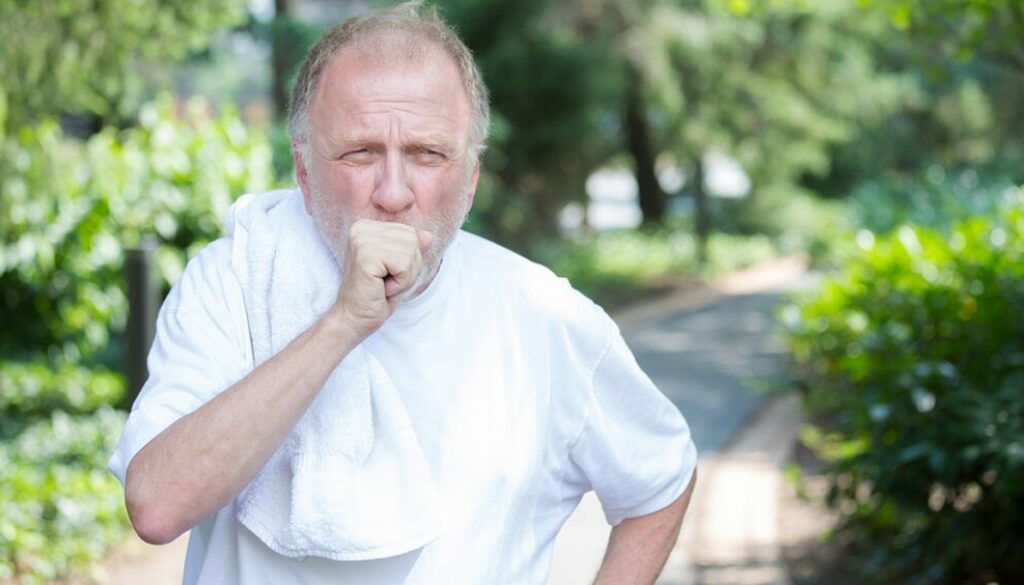What Are COPD Flare-Ups & How Can You Prevent Them?
If you or a loved one is among the more than 12 million Americans living with chronic obstructive pulmonary disease (COPD), you know that breathlessness is a constant companion. While some days the symptoms are manageable, on others COPD flare-ups or exacerbations can leave you struggling for air and potentially hospitalized.
These acute worsenings of COPD are frightening and can inflict further damage on already compromised lungs. Being able to recognize the early warning signs and take swift action is crucial for preventing a mild flare-up from escalating into a life-threatening event. With proper management, you can regain control over exacerbations and improve your overall quality of life with COPD.
Recognizing the early warning signs
“For someone living with COPD, it’s important to know the warning signs of an exacerbation, and how to act quickly before it gets worse.” says Marcia Hearl, Director of CMC Cardiac and Pulmonary Rehab. “Early action can help prevent a flare-up from becoming life-threatening and/or leading to further lung damage.”
Early symptoms of an oncoming flare-up might include:
- Shortness of breath
- A sore throat
- More mucus than usual
- Change in color of mucus
- Fatigue
- Increased cough or wheezing
If your symptoms are more serious, such as dizziness, blue or gray nails and lips, chest pain, coughing up blood, severe shortness of breath, and coughing or wheezing, seek immediate medical attention.
Preventing COPD Flare-Ups
Exacerbations are often caused by lung infections or air pollutants. If you live with COPD, a viral or bacterial infection like the flu, COVID, or pneumonia can be serious. Changes in the weather and the season can also trigger a flare-up. Marcia Hearl says folks with lung conditions should “avoid hot, steamy showers as they can make it harder to breathe. Instead, use tepid water and have a robe ready to dry off easily”. Another common trigger is cigarette smoke. People living with COPD should avoid even being around cigarette smoke.
Marcia Hearl recommends the following lifestyle changes to prevent exacerbations.
-
Quit smoking
The CDC says smoking is a main cause of COPD, and continuing to smoke can worsen your condition. If you were a heavy smoker and quit, continue your regular check ups with a primary care provider because the effects of smoking can sometimes show up overtime. If you are ready to stop smoking, CMC has free resources for you.
CMC and the American Lung Association’s Freedom from Smoking program gives you the options, resources, and support to quit for good. The FREE program features a step-by-step plan, and each session is designed to help you gain control over your behavior.
-
Avoid Viral Illnesses
Vaccines can protect you from some respiratory infections like the flu, pneumonia and COVID, which are a leading cause of COPD flare-ups. Wearing a mask, washing your hands, and avoiding large crowds can also help you avoid catching a cold, or another illness.
-
Stay on top of your COPD medications
Your healthcare providers will ensure you have the medication plan that works for you and your stage of COPD. Whether it’s taking your medications at the same time each day or always having your inhaler on you, it’s important to not fall behind on your plan.
-
Improve your diet and physical activity levels
Healthy food and regular exercise can make a big difference in your COPD symptoms. There are plenty of ways to add more movement into your every day, and even ten extra minutes of movement a day can make improvements. It’s always important to talk to your provider before beginning an exercise routine. A great place to start is CMC’s Pulmonary Rehab Services. Ask your primary care provider if the program is right for you.
Improve Life with COPD at Conway Medical Center
At Conway Medical Center, we understand the burden of living with COPD. Our Pulmonary Rehabilitation Program is a safe and effective way to help you feel better faster, become stronger, reduce stress and improve your overall quality of life. The program includes both exercise and education geared towards improving the symptoms of COPD and other respiratory diseases. Ask your primary care provider about pulmonary rehab and start living better.




